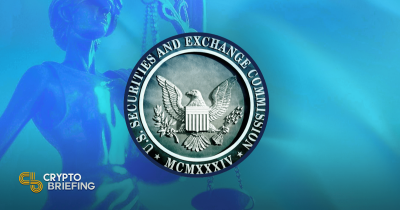
Vince Dioquino
Vince is a self-taught creative with a background in philosophy. He's been writing about crypto since 2017.

Latest
Linea proposes framework for L2 decentralization, plans shift to proof-of-stake


Linea proposes framework for L2 decentralization, plans shift to proof-of-stake
Bitcoin’s lead narrows but still outpaces other assets despite Q3 downturn: NYDIG


Bitcoin’s lead narrows but still outpaces other assets despite Q3 downturn: NYDIG
SEC and DOJ back Nvidia investor lawsuit over alleged crypto sales misrepresentation


SEC and DOJ back Nvidia investor lawsuit over alleged crypto sales misrepresentation
Tron emerges as stablecoin powerhouse, outpaces Bitcoin, Ethereum, and Solana with $566 million in Q3 revenue


Tron emerges as stablecoin powerhouse, outpaces Bitcoin, Ethereum, and Solana with $566 million in Q3 revenue
Iran-Israel crisis could drive investors with ‘debasement trade’ favoring Bitcoin and gold — JPMorgan


Iran-Israel crisis could drive investors with ‘debasement trade’ favoring Bitcoin and gold — JPMorgan
Vitalik Buterin advocates lower requirements to democratize Ethereum solo staking


Vitalik Buterin advocates lower requirements to democratize Ethereum solo staking
Bitcoin holds steady at $61K as whales buy despite geopolitical tension


Bitcoin holds steady at $61K as whales buy despite geopolitical tension
Crypto markets reel as Middle East conflict sparks global uncertainty


Crypto markets reel as Middle East conflict sparks global uncertainty
Kraken to delist Monero in European Economic Area due to regulatory pressure


Kraken to delist Monero in European Economic Area due to regulatory pressure
Crypto voters emerge as key bloc in 2024 election, new survey finds


Crypto voters emerge as key bloc in 2024 election, new survey finds
Robinhood launches crypto transfers in Europe, denies stablecoin rumors


Robinhood launches crypto transfers in Europe, denies stablecoin rumors
Bitcoin kicks off ‘Uptober’ eyeing 22.9% historical gains


Bitcoin kicks off ‘Uptober’ eyeing 22.9% historical gains
Circle partners with Mark Carnegie to bring USDC to Australia


Circle partners with Mark Carnegie to bring USDC to Australia
EigenLayer’s EIGEN token now tradable as restrictions end, debuts with $7B FDV


EigenLayer’s EIGEN token now tradable as restrictions end, debuts with $7B FDV
Japan eyes crypto rule changes that could lower taxes, allow ETFs


Japan eyes crypto rule changes that could lower taxes, allow ETFs
Ethereal Exchange proposes integration with Ethena Network


Ethereal Exchange proposes integration with Ethena Network
Bitcoin poised for Q4 gains amid US election uncertainty and halving impact


Bitcoin poised for Q4 gains amid US election uncertainty and halving impact
Solana meme coin Moo Deng maintains over $300M market cap, continues to accumulate


Solana meme coin Moo Deng maintains over $300M market cap, continues to accumulate
Loading more articles...
You've reached the end


